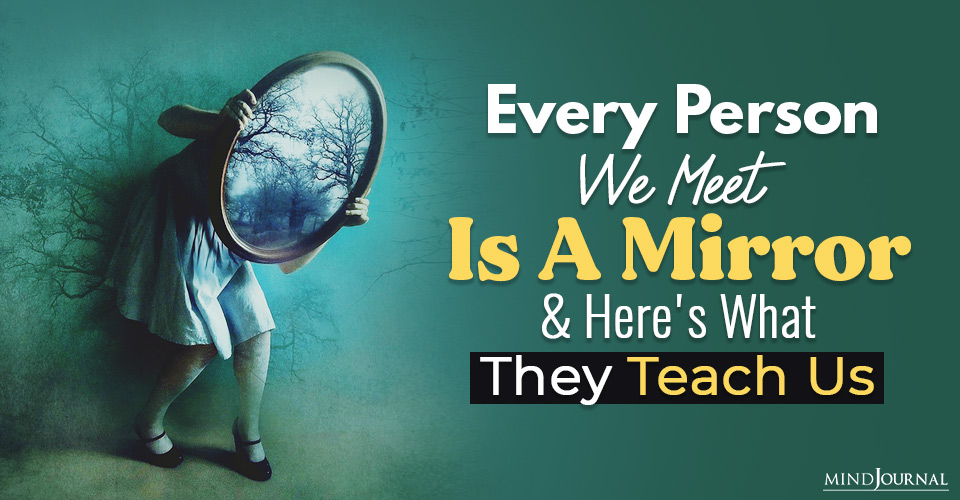Every person, whom we meet in our lives is a mirror and they enrich us with life lessons. All through our lives, we meet people; some are there to stay with us forever while some part ways. But all of them bear significance in our lives. Human beings we meet in our lives are mirrors of what we are.
But how?
Just take a deep breath. While inhaling, think about all the people you have come across. Now exhale, thinking of the emotions adhered to these people.
What was your experience? You experienced both positive and negative sets of emotions, right? You might have felt happy or secured or confident with some and grief, sorrow, pain with others.
You might try to ignore or reject the negative emotions but you must know that these emotions co-exist and that’s what life is all about. So, keep on judging. Judgment is crucial for our spiritual development.
Related: 4 Ways To Cope With Negative Emotions
The human beings we meet in our lives are reflections of our existence. We should judge these relationships which will help us understand ourselves better because they are our biggest teachers.

Accepting this, we will understand that if there is some characteristic of a person which we like, that means we have that positive trait in us too; similarly, if there is some characteristic in a person we don’t like, that means we have that characteristic in us too but we don’t wish to possess that.
Related: Your Soulmate Is also Your Soul Mirror – Here’s Why
To help you understand this better, we have chalked down a list of negative traits and their positive meanings to help you comprehend the world, better!
These are the lessons you can learn from some of the negative emotions which people provoke in you.
1. Anger
You need to adopt a bigger picture thinking. Try to focus on the good and positive things that are happening in the world, instead of just seeing the negative ones.
2. Grief
You need to accept life for what it is. You need to accept the lessons it’s throwing your way, and work on reconnecting with your center. Grieve the loss you have experienced, and then work towards moving on.
3. Fear
You need to understand that you cannot control everything in life, and sometimes you need to let go of things that are not within your control. Life is an unpredictable thing, so might as well enjoy it. Revel in your adventurous spirit and don’t stay stuck in your comfort zone.
4. Hatred
You need to treat yourself with a lot of love and forgive yourself for the mistakes you have made. And once you are able to do that, you will be able to do the same for others as well.
5. Irritability
You need to accept the fact that not everybody will think like you, nor will they have the same opinions as you, and that’s okay. Learn to respect other’s opinions, needs, and desires, while respecting yours.
6. Jealousy
You need to be kind enough to yourself, and respect who you are, and the current situation you are in. Don’t make yourself feel bad by constantly comparing yourself to others. Focus on your own growth and self-development.
7. Guilt
You need to introspect and try to understand why, where, and when you lost touch with your truth. Once you realize this, it will be easier to accept things for how they are, and this acceptance will take you closer to the ultimate truth.
Related: 4 Guilt-Free Steps To Deal With Guilt Trippers In Your Life
8. Blame
You need to take responsibility of yourself, your thoughts, feelings and opinions. Don’t just blame the world, instead take responsibility of who you are and how you think.
9. Shame
You need to investigate your dark side and all those things that you have repressed within yourself. And after that, you need to slowly accept that part of yourself, and try to find the positive in it. This will help you embrace and accept yourself completely.
Our spiritual development is of primary importance to us. Churning the negative into positive and perceiving other people as teachers evolve us spiritually.
Reference: Conscious Reminder













Leave a Reply